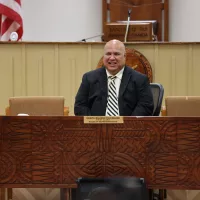
The Customs Division of Treasury is issuing notices of seizures to the consignees of 32 vehicles imported directly from China. The consignees or importers have 30 calendar days to file a complaint or appeal with the High Court of American Samoa if they wish to contest the seizure. All costs related to re-exportation of the vehicles are the sole responsibility of the importers. Public funds will not be used to subsidize the removal or return of the non-compliant vehicles. This is according information provided by Treasurer Donald Kruse to the media concerning the vehicles from China.
He stated that enforcement is being carried out pursuant to provisions in the American Samoa Code Annotated, which authorizes the use of federal regulatory frameworks in the absence of specific territorial provisions.
The vehicles were flagged for a variety of infractions, including:
- Unregistered manufacturer: Federal law requires that each manufacturer of a motor vehicle shall furnish specific information, including a description of each vehicle type, to the Administrator of the National Highway Traffic Administration.
- Missing Federal Motor Vehicle Safety Standards certification label, which certifies that the vehicle conforms to all applicable federal motor vehicle safety standards.
- Invalid or non-decodable Vehicle Identification Number (VIN).
- Absence of Department of Transportation (DOT) declaration, which verifies the vehicle conforms with all applicable safety standards and bears a certification label, or that it is a replica motor vehicle eligible for an exemption
- Unauthorized importation outside of Registered Importer (RI) protocols: Anyone wishing to register as an importer of motor vehicles not originally manufactured to conform to all applicable federal motor vehicle safety standards must file an application.
According to the Treasurer, the importation of the vehicles—the majority of which originated from China—raises concerns over market destabilization, potential circumvention of U.S. regulatory protections, and national security vulnerabilities. “These imports correspond with rising Asian-owned commercial activity within the territory,” he noted.
Kruse emphasized that there is a misleading public perception that EPA emissions approval alone authorizes vehicle importation. “This belief is incorrect. While the EPA governs environmental compliance, full import authorization requires meeting all U.S. Department of Transportation and National Highway Traffic Safety Administration safety regulations.”
In addition, American Samoa currently has no federally authorized registered importers or Independent Commercial Importers.
Only federally registered importers are permitted to import vehicles requiring conformity modification. Independent Commercial Importers must obtain a certificate of conformity for each configuration prior to importation.
The Treasurer concluded, “We recognize this renewed enforcement posture may prompt public reaction, especially considering limited prior enforcement. However these requirements have long existed under federal and territorial law. Any prior non action reflects a lapse in execution, not in legal authority.”




